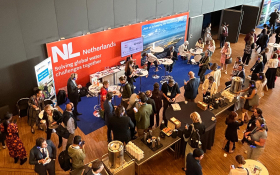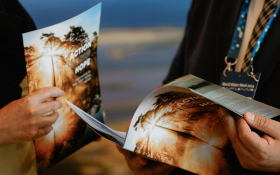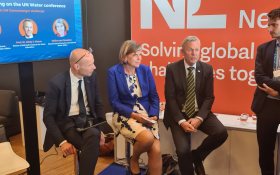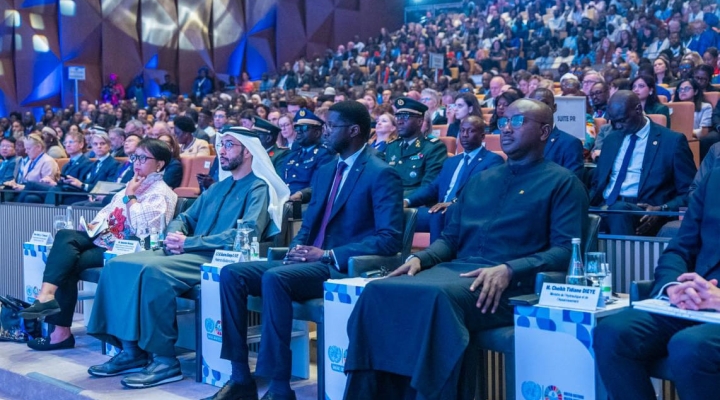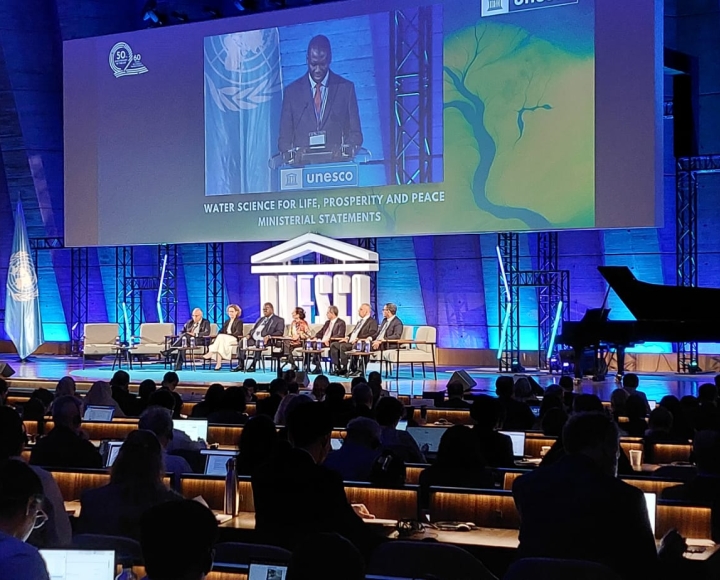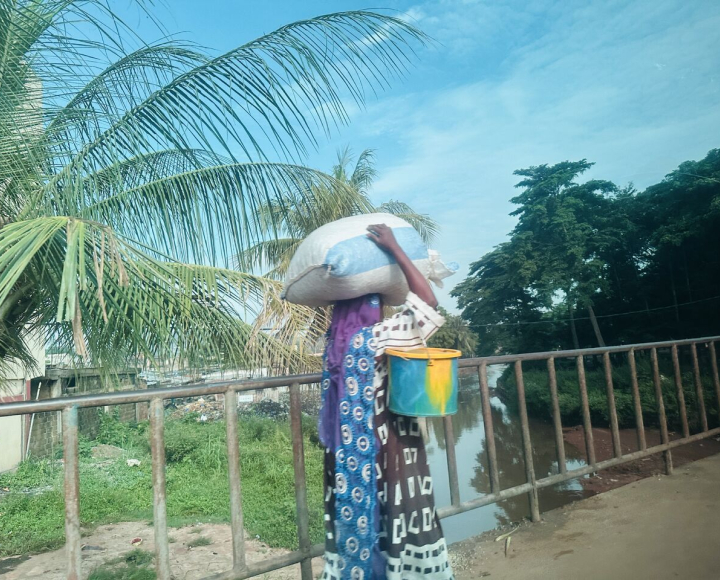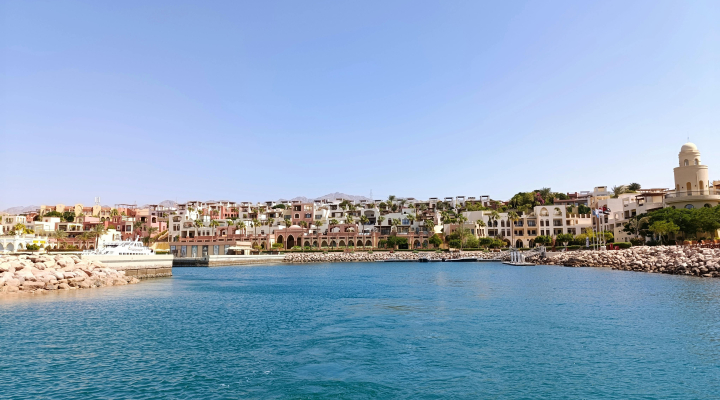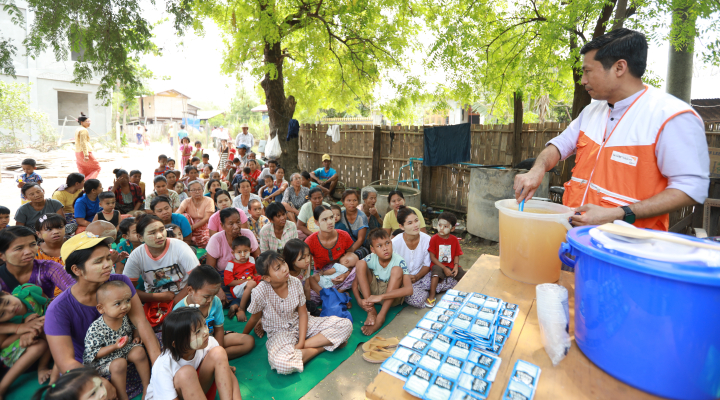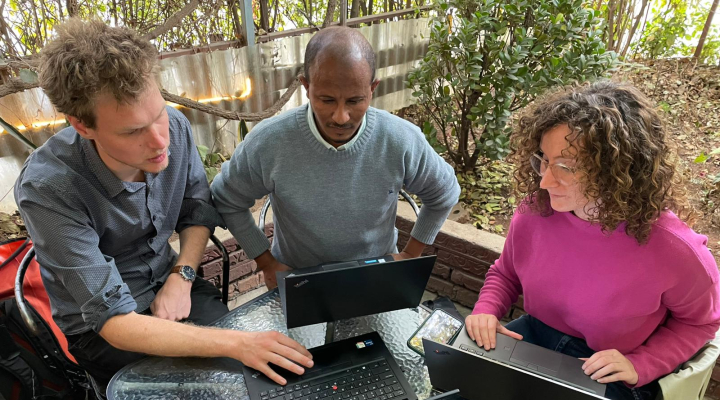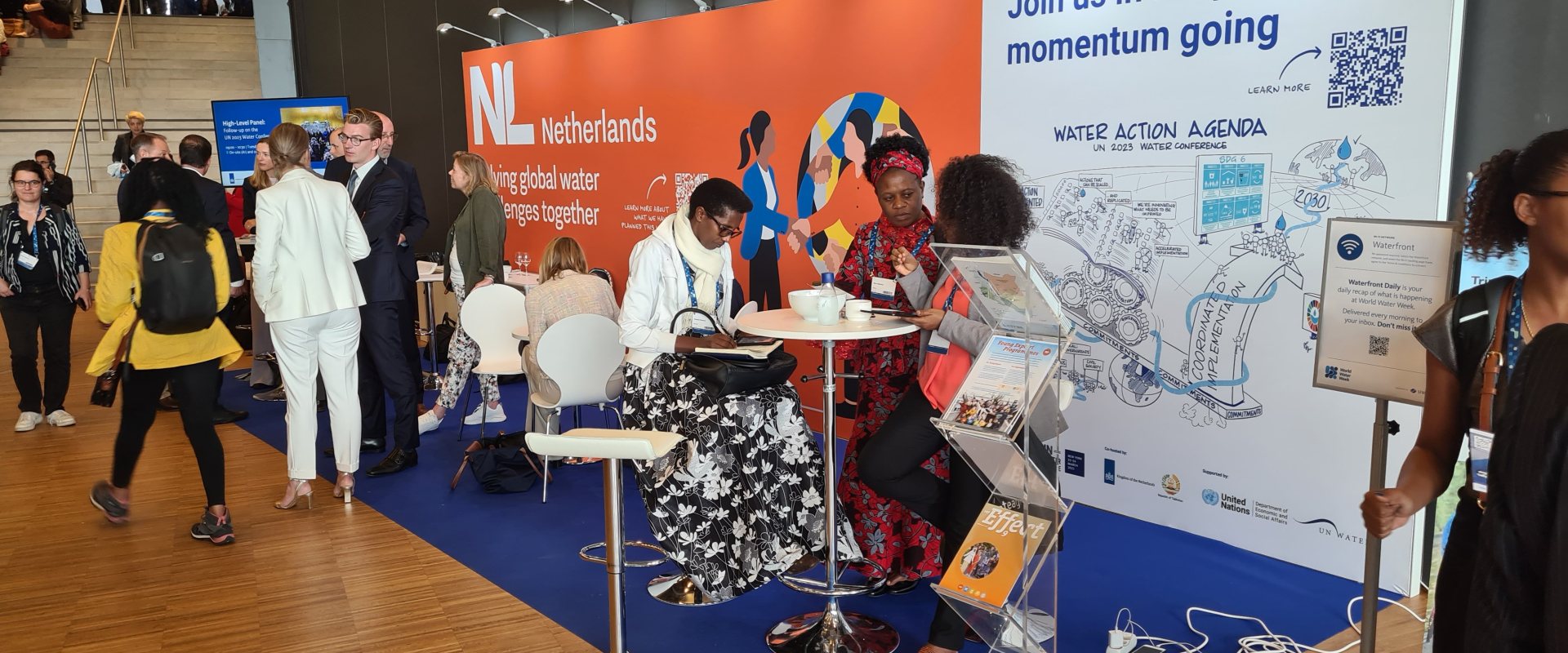
Water community at Stockholm World Water Week ready to meet growing water crises head-on
With only seven years left to achieve universal access to clean water and decent toilets, the growing tension amongst the participants of the Stockholm World Water Week was tangible. The implementation of WASH programmes needs to be accelerated but water issues are complex. More than ever the event was hands-on to restore the disrupted water cycle, building on the outcomes of the UN Water Conference in New York in March. New Dutch water envoy Meike van Ginneken encouraged the global water community by looking back on previous successes such as bringing down child mortality caused by waterborne diseases.
This year’s edition of the Stockholm World Water Week ended on 24 August, having attracted 15,000 participants from 192 countries, many of which followed the online sessions. Women, youth, and indigenous people were well represented making it a truly inclusive event. The four-day event was built on the successful UN Water Conference in March in New York, providing the opportunity for the global water community to meet again and keep the momentum going for the Water Action Agenda. Many of the 300+ sessions reflected on what can be done at a global level to accelerate the delivery of ‘water for all‘ and to achieve SDG#6 on water by 2030. One of the issues discussed was a supportive framework, not only for SDG#6 but for all SDGs as water security is essential for achieving other sustainable targets such as food, poverty, health, and energy. This framework will be on the agenda at the next UN General Assembly in September.
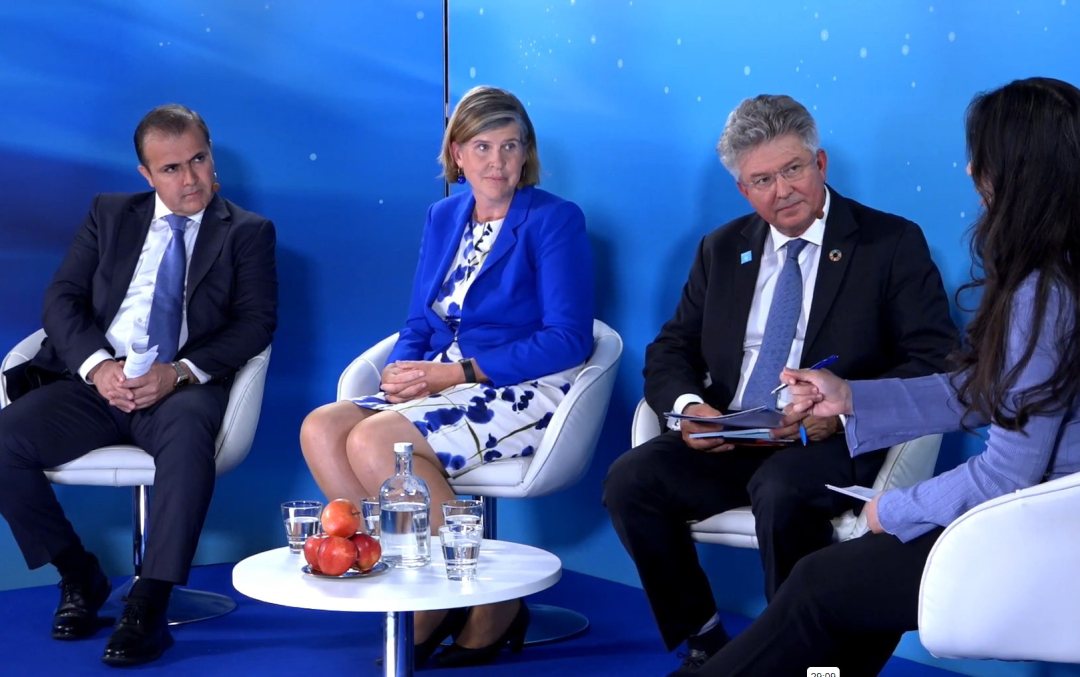

First appearance of new Dutch water envoy
One of the speakers who reflected on the UN Water Conference was the new Dutch water envoy Meike van Ginneken. It was her first international appearance as the successor of Henk Ovink. Van Ginneken spoke on various occasions. In a talk show, she reflected on how to keep the momentum of the UN Water Conference going. Looking at the conference in New York, she mentioned the presence of societal groups, businesses, and academia. “It was not a traditional UN conference with only governments. Because of the presence of so many groups, we created ownership of the action agenda and now, over 150 days, later a lot is going on. So many people are involved in action on the ground. Whether it is a utility in Latin America, or a farmers group in Nepal, a community on the Amazone, or a minister of finance in Asia, all contribute to a more water-secure world”. She called for the support of these people. “The challenges are huge”, the Dutch water envoy reflecting on the need to restore the global water cycle. “However, we have the skills. Let us not forget what we already achieved. We have given billions of people access to basic water. We see more floods but at the same time, we see fewer deaths. We need to more, better, and faster but let us build on the successes of the past and support the champions”.
Dutch Water Envoy Meike van Ginneken: ''The challenges are huge, however, we have the skills. Let us not forget what we already achieved. We have given billions of people access to basic water. We see more floods but at the same time, we see fewer deaths. We need to more, better, and faster but let us build on the successes of the past and support the champions”.
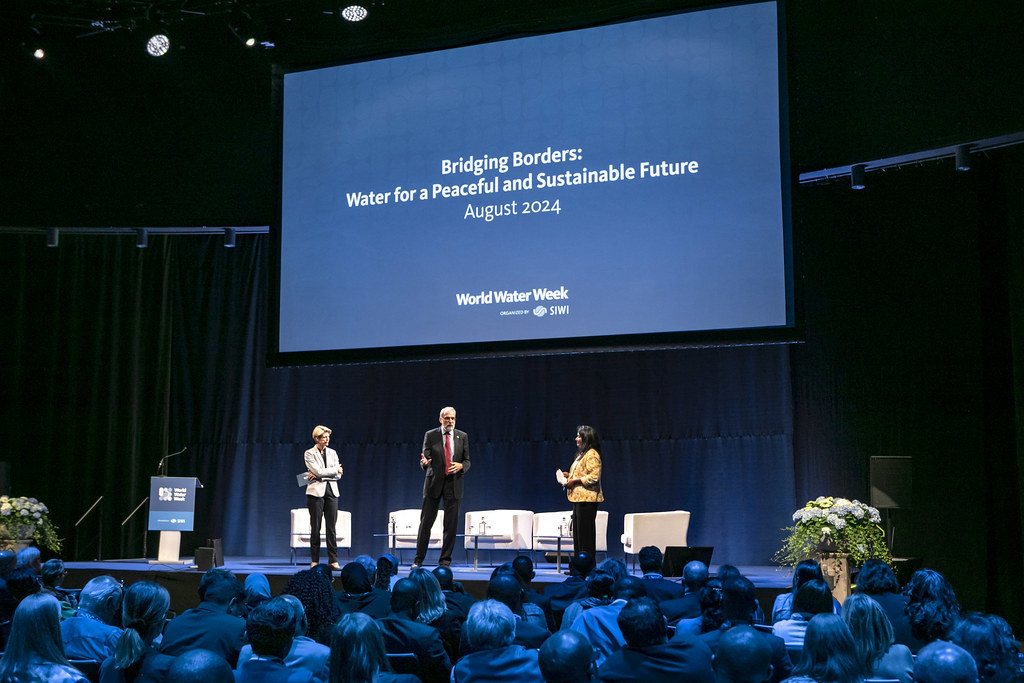

Reach out to other sectors
Next to the success of the UN-Water conference, Van Ginneken also mentioned the need for the global water community to reach out to other sectors, such as climate, health, nature, energy, and agriculture. “It is not only about water people talking to water people. Later this year is the next climate summit COP28, and we have a unique opportunity to bring in the water agenda. Climate adaptation is an important home for the water”, Van Ginneken pointed out.
The hosting government of COP28, the United Arab Emirates has invited the water sector to join, and Stockholm provided to discuss the main messages. At a special session, the involved water organisations presented the preliminary outcomes. The contribution of the water sector to COP28 will be based on three pillars: restoring freshwater ecosystems, accelerating urban water resilience, and building water-resilient food systems. Many water organisations will present in Dubai to bring these issues to the table to make sure they are included in future decision-making and global policies.
Main Dutch contributions
The Dutch government was one of the main partners of the event and hosted several sessions, including one that explicitly looked back on the UNWC and the way forward. Another session was viewed on a common water agenda for the next Climate Summit COP28 in Dubai in December. A third session worth mentioning was on water as a common good and how to change the economics around water so the world becomes less thirsty, nature can be re-hydrolysed and, at the same time, universal access to clean water can be achieved.
The next Stockholm World Water Week will take place again in the last week of August and the theme will be Bridging Borders, Water for Peaceful and Sustainable Future. This theme links to the theme that the UN has chosen for World Water Day on 22 March.
This concludes a series of six reports on the Dutch participation in the Stockholm World Water Week 2023.




